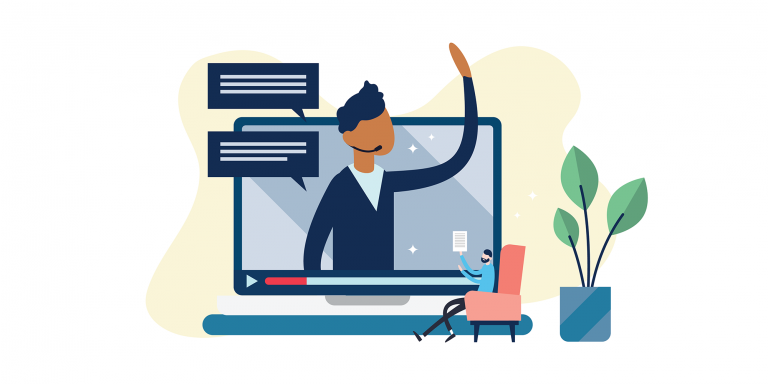The love you find within yourself will be yours forever. However, I know that the journey back home to yourself, the journey towards being comfortable, and at peace, on your own, and learning how to hold your own heart, and hold your own space, in a way that doesn’t scare you, but rather, in a way that empowers you, isn’t easy.
We live in a world where we are constantly being fed so many distractions. We don’t have to learn how to be alone with ourselves, because we never really are. We can fill our lives to the brim with other people, with being busy, with work, with scrolling, with so many energetically and time consuming things, that we never really have to sit with ourselves and be alone with ourselves if we don’t want to.
But I always ask this: “Who are you when you’re alone with your mind? And are you happy? When the world is quiet, and the distraction and the noise is stopped, what is asking to be felt? Do you feel at home with yourself?”
Often the answer is no. And that is why alone is considered something that is uncomfortable, and something that most human beings avoid. It’s difficult, it’s hard to be alone. And that is something you don’t have to be ashamed of. You don’t have to vilify yourself for maybe finding it hard to love yourself, or to be okay on your own. At the end of the day, we need one another. We need meaningful relationships, we need that interaction. It is why we have evolved and survived for so long as a species. Learning how to be alone does not mean that you need to shut out the world, that you need to never ask for help, that you need to be closed off and removed from connection. It’s beautiful to want to love, to want to experience so much at the hands of life with the people who make you feel seen and heard and at peace within this world. But when we focus so much on finding that feeling externally, sometimes we forget that we can give it to ourselves as well. Sometimes we forget that the love we have always sought in others can first, and foremost, be found within ourselves.
This is your reminder that alone is not synonymous with not good enough. Alone is not a weakness, it is not something to be ashamed of. Alone is a gift. It is a foundation, a steady ground within yourself that will be there whether or not you are in a relationship, or you get a good morning text. Alone is knowledge, in yourself and in your hopes. Alone is a ruthless dedication to understanding your heart and fighting for what compels it after years of allowing for it to be loved in halves. Alone is not lonely. Alone is not broken. Alone is an anchoring, a healing — a reminder that the love you find within yourself will be yours forever, a reminder that you have the capacity to be your own home.
I believe so deeply in learning how to be alone, because often when we are afraid of being alone, we tend to keep things in our lives that are not meant for us. When we are afraid of being alone, sometimes we settle for less than what we know we deserve, or need, or deeply desire, because we would rather have something than nothing. We tolerate behavior, or things that do not inspire us, or encourage our growth, or love us the way we have always dreamed of being loved, because we do not want to lose what we have just in case something better does not come along. And if something better does not come along, if we don’t have another human being or their attention telling us that we are loved, that we are worthy, that we are valid, then who will? Learning how to be alone teaches us that even if everything external leaves us, even if the home we have built within so many things in this life suddenly shatters, or disappears, we will always have the ability to step into the home that is our own heart, our own soul, our own mind.
Learning how to be alone is important because it is in our capacity to be alone that we no longer settle for things that we have outgrown. We no longer grip. We no longer seek external validation as a means of feeling loved, or worthy. We have done the work to love ourselves. We have done the work to be okay within our quiet, within our calm, within our minds. We have broken up the dirt within ourselves, we have looked the scary things in the face, we have no longer swept them under the rug, we have no longer allowed for fear to allocate our energy to things that are not deserving of it. Instead, we have faced the fear. We have grown within it. We have learned how to be strong on our own. How to build that foundation.
And it is within that, that we start to see the things that come into our lives from a place of self respect, and self love, rather than fear. When you are comfortable on your own, the things that you allow into your heart, into your life, are only ever going to be adding to it. You are no longer allowing yourself to accept things that ask you to settle, that ask for you to be less of yourself, that make you feel like you are hard to love, or like you just have to accept them because they are there. Instead, now, the things that you allow into your life, are things that are growing you, and inspiring you, and helping for you to stay true to yourself. It is no longer a question of if someone likes you, if you are good enough. It’s a question of if you like them, if they can give you what you need, what you desire. There is no longer this worry of being without, because you are never without when you know you have yourself.
From this space, your capacity to love others also increases. When we love from a place of fear, from a place of being so worried that we will lose someone, from a place of being so scared that we are going to end up alone — that is not love. That is attachment. And we know that attachment will never turn into love, because attachment is the kind of dynamic that makes us think we have to possess something in order to be happy, that we need it in our lives in order to feel fulfilled and at peace. When we can be our own peace, when we can fulfill ourselves, when we can be our own happiness — we love freely, and openly, and with ease. We can be fully present, we can love from a place deep within ourselves, from a place of deep understanding of our hearts, and our worth, and we can give so much to those in our lives from a place of compassion and empathy, rather than giving from a place of fear, which is often just us trying to possess something.
However — this kind of growth is so incredibly difficult at first. Studies have shown that people would rather administer an electric shock to themselves than be alone with their thoughts for 15 minutes. There is such an aversion to being alone, because we are so stimulated, we are so convinced that we always have to be seeking our happiness outside of ourselves. But there is a lot of beauty that can be found from committing to yourself and to committing to working through that discomfort. On a biological level, when we work through things that are creating a stress response like discomfort within us, when we commit to a task or achieving something, and ensuring that we are pushing ourselves along, it actually creates a dopamine reward system within our brains. We are literally learning how to reward ourselves, not externally, but within the act of committing to something deeper for ourselves, within the act of committing to being better, to doing the work — that act of self-love actually creates a happiness response within ourselves. Slowly alone becomes something that feels less uncomfortable. Slowly, our alone becomes a beautiful place to be.
And so in understanding that — no matter how difficult it is, this is your encouragement to commit to yourself. To start leaning into your own soul. To finally sit with yourself and listen to your needs and know yourself. To do the work.
If the idea of being alone scares you, that is when you know that you need to remind yourself that you are your own home. That is when you know you need to start learning how to give yourself the same love you seek externally. That is when you know you need to quiet the distractions, you need to be okay in your own company. Because it is better to be alone than to be with someone who makes you feel lonely. And it is better to be alone than to be settling for things that you know deep down are not for you. It is better to be alone than to make love into something you feel you have to grip at, something you have to possess, instead of something beautiful and soft. It is better to be alone than to lose yourself in the need for external validation. It is better to be alone.
* This article was originally published here









